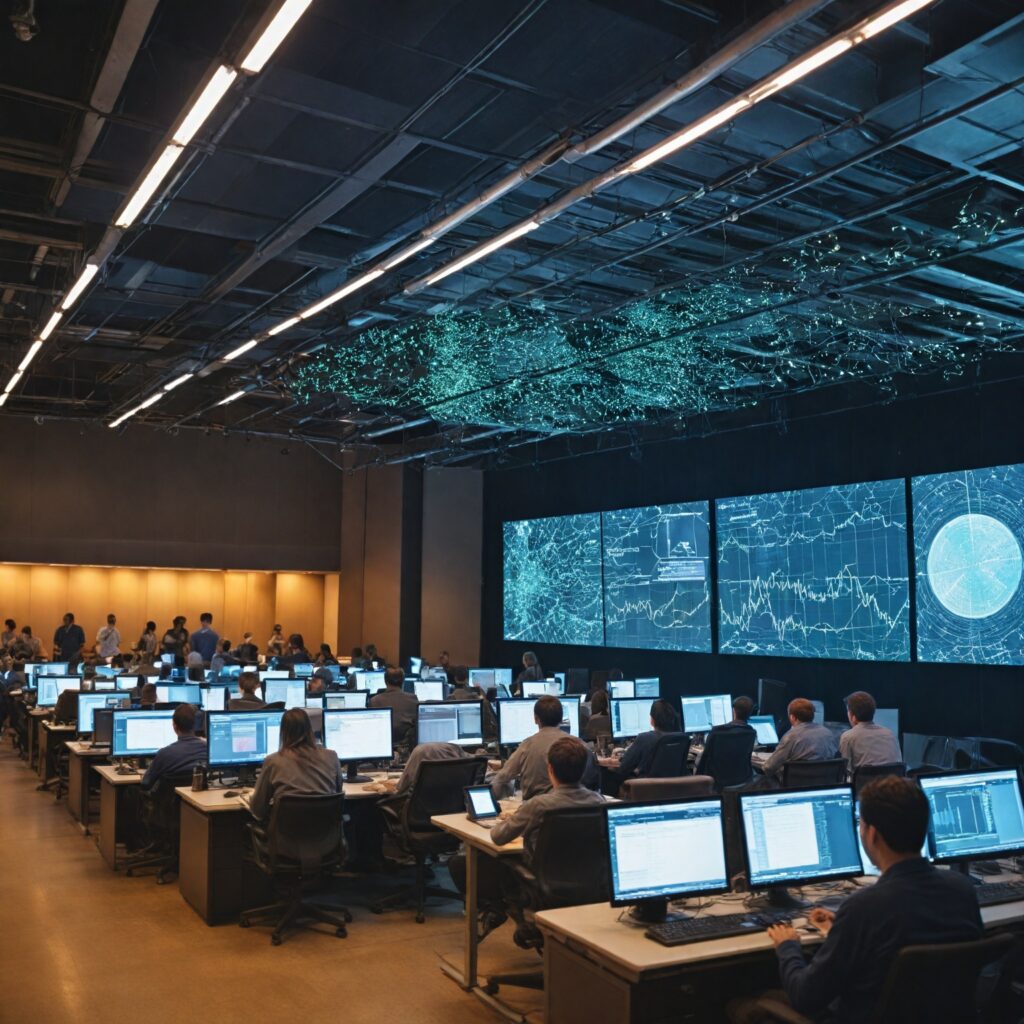
Highlights
– Artificial intelligence (A.I.) is increasingly integrated into daily life.
– A.I. poses an environmental cost due to intensive computing energy use.
– The choice of A.I. model impacts energy consumption and greenhouse gas emissions.
Unpacking the Environmental Costs of Artificial Intelligence
Artificial intelligence (A.I.) is no longer just a concept from science fiction movies; it’s now a pervasive part of our daily lives, from chatbots offering assistance to advanced models generating personalized content. However, as A.I. advances, so do the environmental costs associated with it. Recent research sheds light on the substantial energy consumption of A.I. systems, highlighting how the push for more complex and powerful models is contributing to increased greenhouse gas emissions.
The Energy Department’s report issued last year foretells a concerning future: the projected surge in electricity demand for data centers driven by A.I. applications could significantly elevate overall energy consumption and reliance on fossil fuels. This trajectory not only raises questions about sustainability but also underscores the urgent need to reassess A.I. development strategies with environmental considerations at the forefront.
Navigating A.I. Efficiency and Environmental Impact
A pivotal aspect of the discussion surrounding A.I.’s environmental footprint is the energy consumption variability across different A.I. models. A recent study focused on evaluating various generative A.I. chatbots revealed intriguing insights. The research highlighted that while bigger, more complex models yield more accurate responses, they also come at a notable energy cost. The crucial takeaway is that the quest for accuracy should be balanced against the energy efficiency of A.I. models, emphasizing the importance of selecting the right model for the intended task to optimize energy usage.
Moreover, the study’s findings underscore the correlation between the nature of questions posed to A.I. systems and their energy consumption levels. Logic-based queries requiring elaborate responses tend to drive up energy usage, contrasting with fact-based inquiries that demand relatively lower computing energy. These nuances shed light on the impact of task complexity on A.I. systems’ energy efficiency and emissions, urging a reevaluation of how tasks are allocated to A.I. algorithms for optimal sustainability.
Rethinking A.I. Development for Environmental Stewardship
The complexity-energy tradeoff in A.I. models raises critical questions about sustainable technology innovation. As society increasingly relies on A.I. for various tasks, how can developers strike a balance between performance and environmental impact? One solution may involve designing task-specific models tailored to operate efficiently for distinct functions, thereby curbing unnecessary energy consumption.
Furthermore, the study’s emphasis on the environmental repercussions of A.I. usage prompts reflection on the broader implications for climate action. Could A.I. developers adopt greener practices in model training and implementation to mitigate their carbon footprint? How might governments and regulatory bodies incentivize energy-efficient A.I. development to align with sustainability goals? These pressing questions underscore the growing need for collaborative efforts to steer A.I. advancements towards a greener and more sustainable future.
In conclusion, the intersection of A.I. development and environmental concerns presents a complex challenge that demands proactive solutions and strategic decision-making. As we navigate the intricate landscape of technological innovation, let’s ponder the long-term implications of our choices and strive for a harmonious balance between progress and sustainability. How can we harness the power of A.I. to drive positive environmental change? What role should ethical considerations play in shaping A.I. development practices moving forward? Let’s embark on this journey towards a more sustainable future together.
Editorial content by Sawyer Brooks











